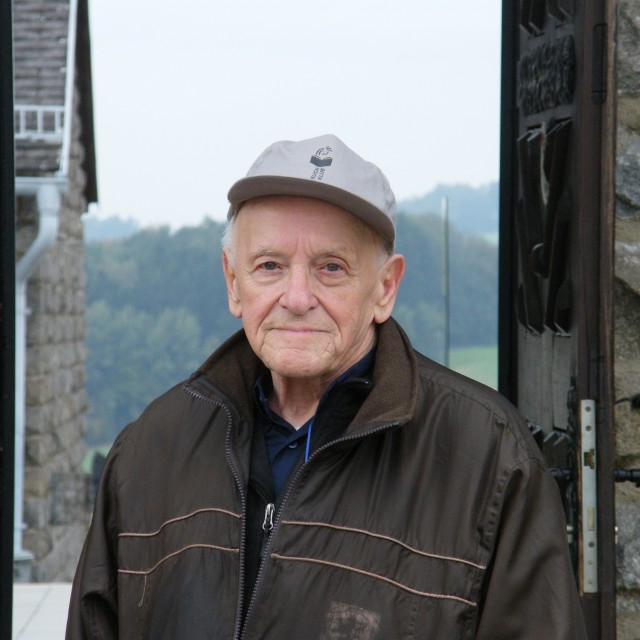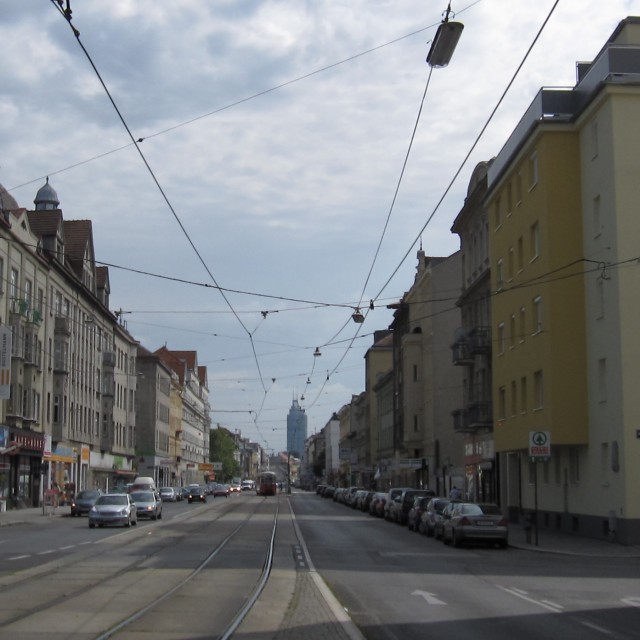Incendiary Boxes in Action
The Czech House on Brünner Straße has always served as a meeting place for Czechs living in Vienna. During the Second World War, the patriots united around the Czech House attempted to carry out various acts of sabotage. Many of these people became members of the Communist Party, but often not because they would support the communist ideology; rather they were driven by the need to fight against the German dictatorship. This was also the case of Josef Klat, who recalls: “We did not perceive ourselves as Communists, but the organization gave us the opportunity to participate in the resistance movement; we operated in the entire 21st district.” The acts of sabotage consisted mainly of painting anti-Nazi slogans and communist symbols at various buildings. “We used to meet by the Czech House,” Josef Klat recalls. During one of the operations, a factory where the Nazis used to store trucks form the Saurerwerke factory was set on fire. Unfortunately, the operation was poorly organized, the consequences of which were subsequently felt by the entire 21st district group. On November 21, 1941, Josef Klat and other members of the group were arrested and interned at the Mauthausen concentration camp. However, many Czech nationals united around the Czech House on Brünner Straße were even less lucky and lost their lives.
Hodnocení
Abyste mohli hodnotit musíte se přihlásit!
Trasy
Příběh není součastí žádné trasy.
Komentáře

Josef Klat
Josef Klat was born on the 16th of June 1922 in Vienna into a family of so-called Viennese Czechs. His father and uncles had left Czechoslovakia one by one and settled down in Vienna shortly after the Republic was formed. His mother was also of Czech origin. As Josef Klat was growing up in a foreign country, he took part in patriotic clubs like Sokol or Omladina Komenského [Komenský's Youth - transl.]. The so-called Anschluss of Austria was the first occasion that young Czech patriots in Vienna saw as a sufficient reason to show their defiance to the dictatorship. Josef Klat joined the resistance immediately. He became a member of the Group of the Czechoslovak Section of the illegal Communist Party. As he himself stresses, his reasons for entering the Communist Party were not those of ideological communism, but purely those of organised resistance. He was active in the 21st district. His superiors were F. Nepožitek and Leo Němec. His first duties comprised of distributing informational pamphlets and also of painting communist slogans onto various Nazi buildings or important businesses. He later took part in various sabotage missions. As a member of the Austrian state, he was required to complete military service. Czech youngsters did however make use of the chance Hitler himself gave them, when he declared that he did not want Czechs in his army. In this way, most of the young Czech generation in Vienna avoided being drafted. However, this courageous step did mean receiving a negative entry on their record - they became politically suspicious persons. In July 1940, Josef Klat took part in another sabotage. It was successful, but he came under the scrutiny of the Gestapo. In November 1941 he and some forty other Czechs were arrested and brutally beaten. There was one SS man who was actually willing to help the youngsters and who advised them not to sign the confession, which would also be their death warrant. Those who listened to him survived. Klat was imprisoned in Mittergeis for almost a year. On the 27th of September 1942, a group of Viennese Czechs was transferred to the concentration camp Mauthausen. The conditions in the camp were quite bearable for the Czechs by that time, in 1943. There was a considerable number of Czechs there that helped each other out a lot, some of them held very good positions (H. Maršálek, J. Tobiášek and others). Josef Klat did switched through various labour gangs - he made tiles, cleaned the camp drains, hauled rubbish, distributed bread. He later even became foreman of a labour gang, and as such was able to take part in helping the prisoners in camp - Czechs, Slovaks and others. Probably the biggest and most dangerous operation was the smuggling of three thousand loaves of bread into the Rusenlager sub-camp. The SS men had decided to starve the prisoners of that section to death. After the liberation of Mauthausen on the 7th of May 1945, Klat became a member of the International Committee of Political Prisoners of Camp Mauthausen. He took part in negotiations and recorded minutes of the meetings, but refused to take part in the Mauthaus-Gusen Camp trials. He returned to his family in Vienna. However, his family decided to return to Czechoslovakia due to the political atmosphere. Josef Klat settled down in Mariánské Lázně. He applied himself to his craft, working as a locksmith, later becoming master of a locksmith shop. Due to his experience and also his excellent knowledge of German, he also acted as a guide for those interested in or related to Mauthausen prisoners. He is still a member of the International Mauthausen Committee, he regularly attends memorial services at the Mauthausen camp.



